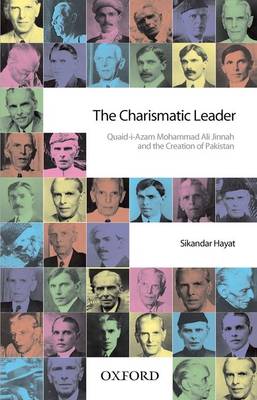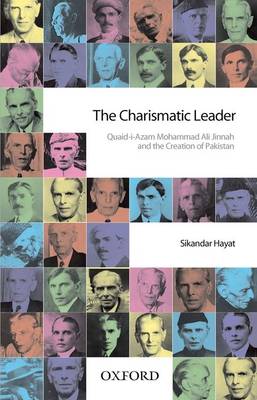
- Retrait gratuit dans votre magasin Club
- 7.000.000 titres dans notre catalogue
- Payer en toute sécurité
- Toujours un magasin près de chez vous
- Retrait gratuit dans votre magasin Club
- 7.000.0000 titres dans notre catalogue
- Payer en toute sécurité
- Toujours un magasin près de chez vous
The Charismatic Leader-Quaid-I-Azam M.A. Jinnah and the Creation of Pakistan
Sikandar Hayat
Livre relié | Anglais
46,45 €
+ 92 points
Description
This second, revised edition of the book is an updated version, covering the most recent writings on the subject, especially in India, and provides a detailed and systematic analysis of the charismatic leadership of Quaid-i-Azam Mohammad Ali Jinnah, the leader of Indian Muslims during the crisis-ridden decade of 1937-47. Based on the concept of charisma formulated by Max Weber and developed by recent writers, the study concentrates on the "personality-related" and "situational" factors that led to the emergence of Jinnah as the charismatic leader of the Muslims and sustained him in that role until the creation of Pakistan. In explaining and explicating Jinnah's charisma, his early political career and the crises facing the Muslims of British India, both systemic and of leadership, have been examined at length. A particular emphasis has been placed on the roles of Aga Khan, Mian Fazl-i-Hussain, Sikandar Hayat Khan, Khizar Hayat Khan Tiwana, Maulana Abul Kalam Azad, and Maulana Hussain Ahmad Madani. This has been followed by a discussion of Jinnah's "formula" of Pakistan, including the criticisms of the Lahore Resolution by the then Hindu leadership and Indian writers of today. Subsequently, an effort has been made to highlight Jinnah's strategy for political mobilization of the Muslims and their organization under the banner of the All-India Muslim League. Finally, his struggle for the creation of Pakistan as the charismatic leader of the Muslims, in spite of the combined opposition of the British and the Congress, is evaluated and assessed, especially in the context of his accepting and then rejecting the Cabinet Mission Plan of 1946, the last constitutional plan to keep India united. In their "enthusiasm, despair, and hope", the Muslims rallied behind Jinnah and his Pakistan demand like never before. The result was that, at the creation of Pakistan in August 1947, his charisma was truly at its "zenith". He had accomplished his mission. Although Jinnah has been studied as a charismatic leader before, no previous study has defined and discussed the concept of charisma so methodically or employed it to analyze his leadership in such a systematic, organized manner. In this sense, the book is unique and distinct and makes an original contribution to the scholarly literature on Jinnah's political leadership. Indeed, as Dr Roger D. Long, a distinguished American historian, observed, "Dr Hayat's analysis of Jinnah as a charismatic figure fills an important lacuna in the field." The first edition of the book received the Higher Education Commission of Pakistan's "Best Book Publication Award" (2011).
Spécifications
Parties prenantes
- Auteur(s) :
- Editeur:
Contenu
- Nombre de pages :
- 520
- Langue:
- Anglais
Caractéristiques
- EAN:
- 9780199069200
- Date de parution :
- 10-09-14
- Format:
- Livre relié
- Format numérique:
- Genaaid
- Dimensions :
- 160 mm x 239 mm
- Poids :
- 816 g

Les avis
Nous publions uniquement les avis qui respectent les conditions requises. Consultez nos conditions pour les avis.






